Blair Tourograph & Dry Plate Co.,
Boston, MA
Combination Camera Reversible Back Variation 2.5
5 x 8"
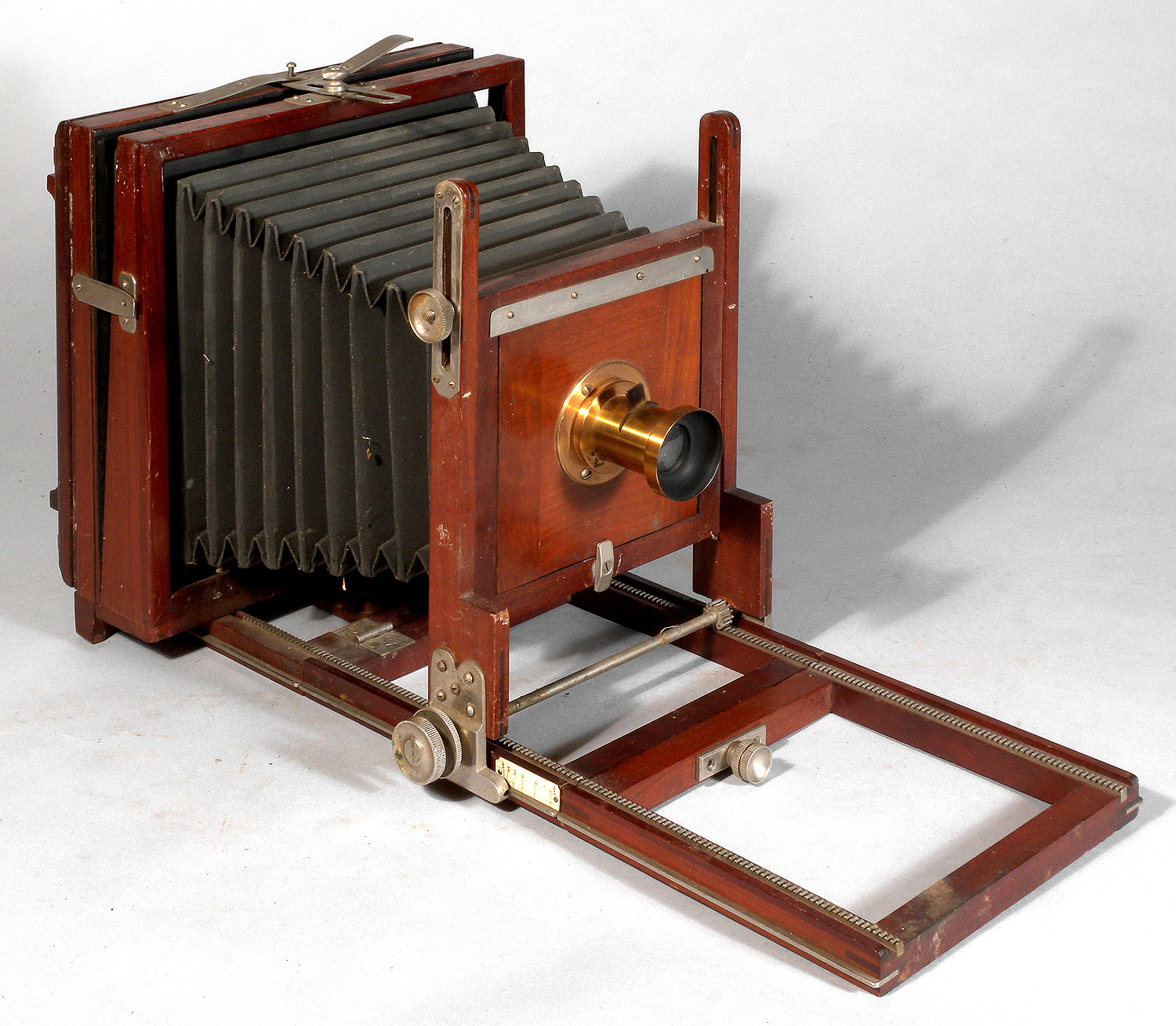
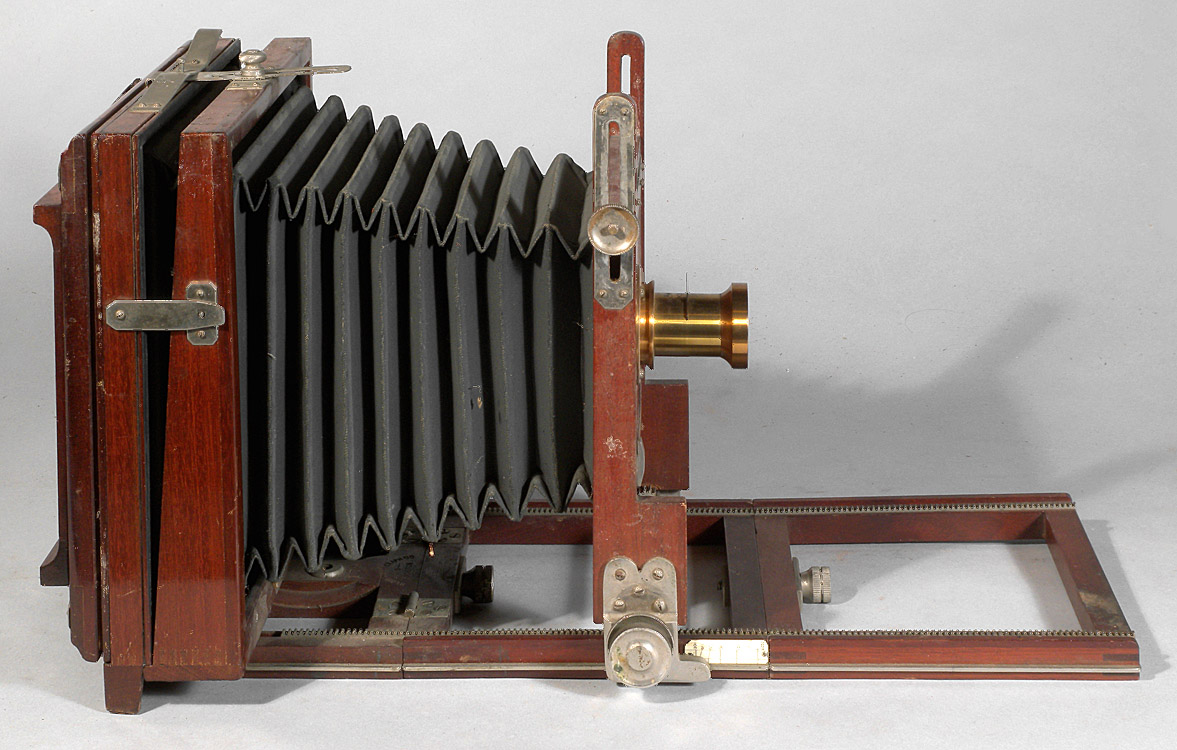
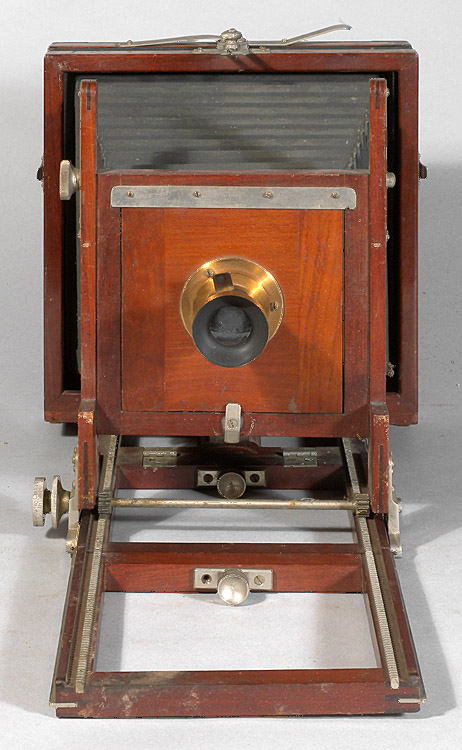
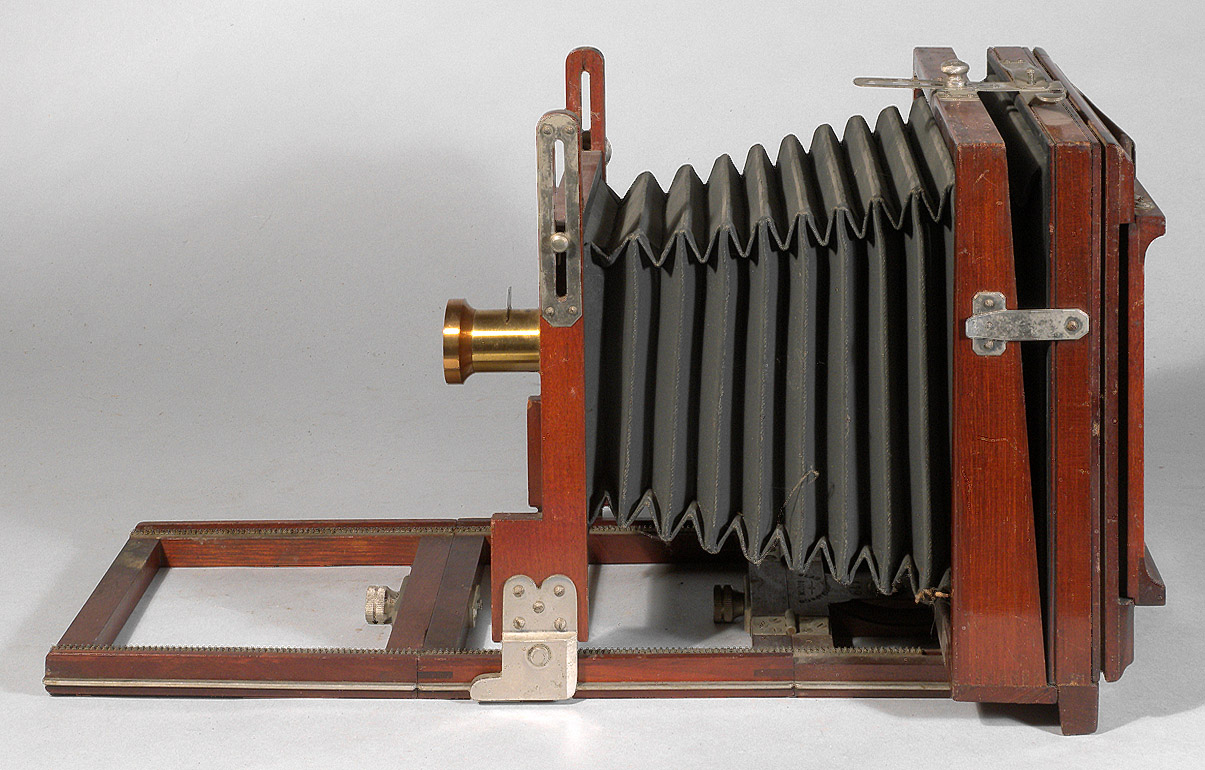
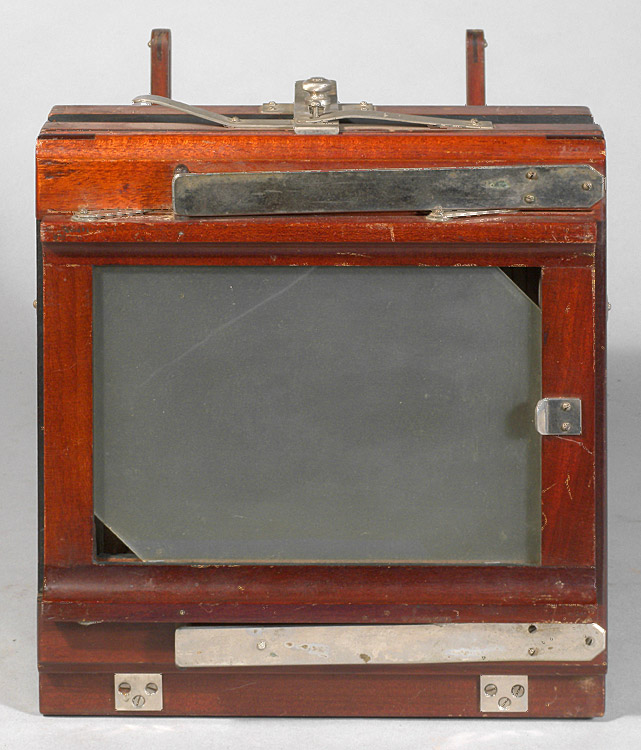
6½ x 8½"
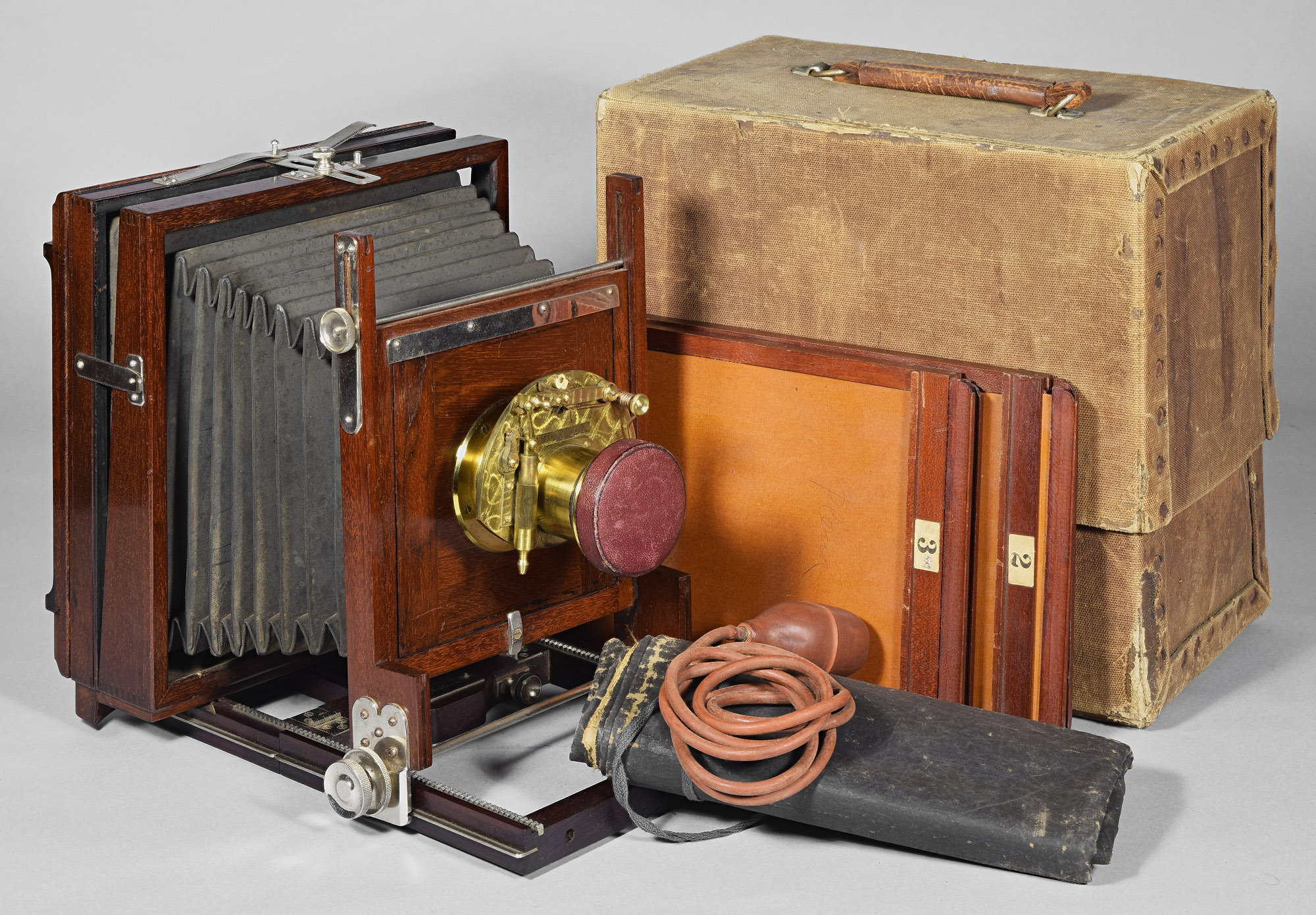
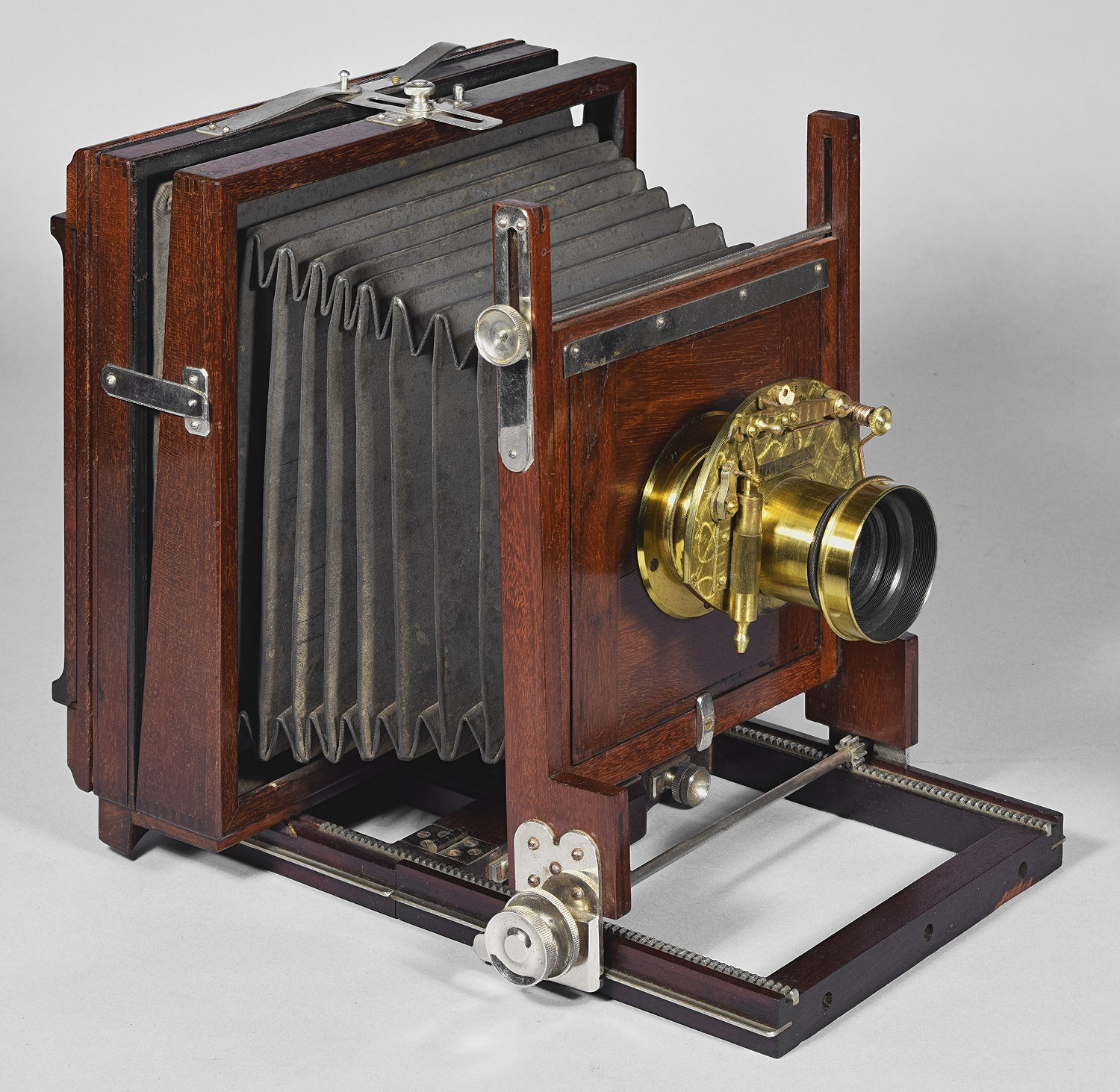
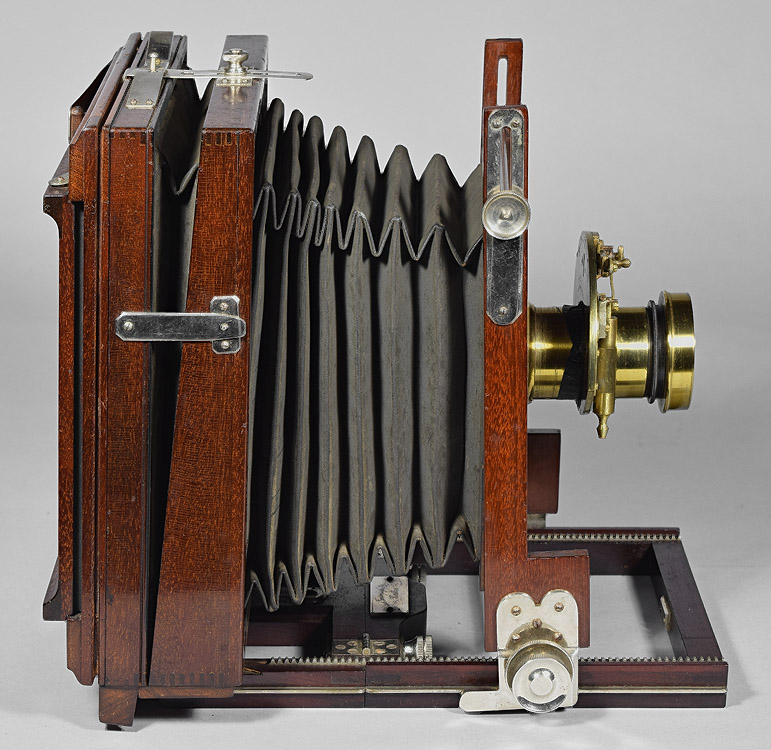
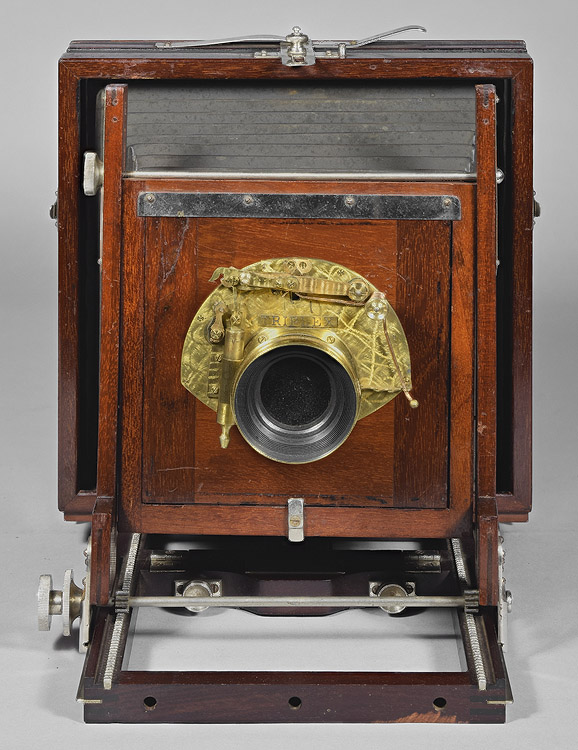
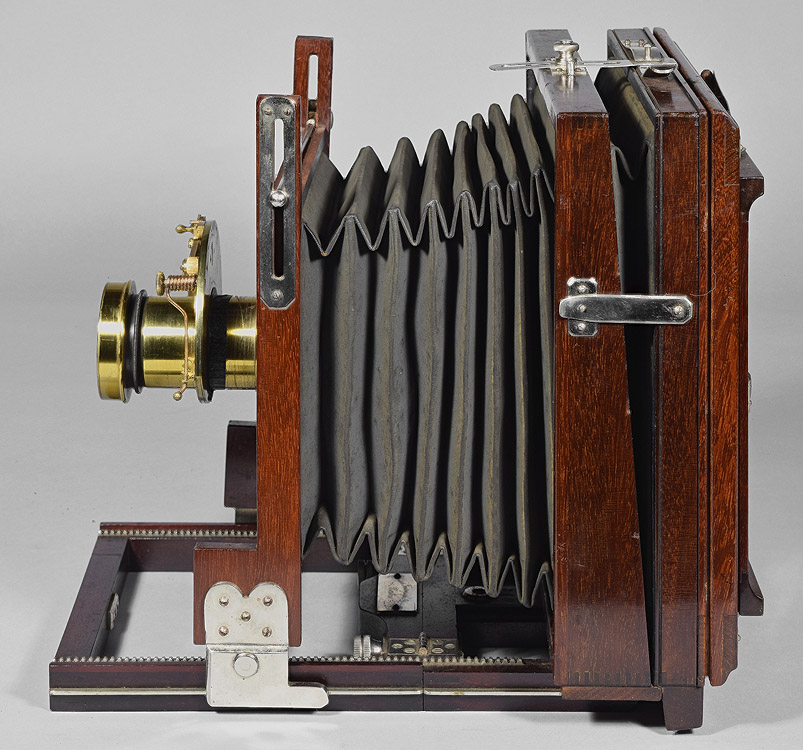
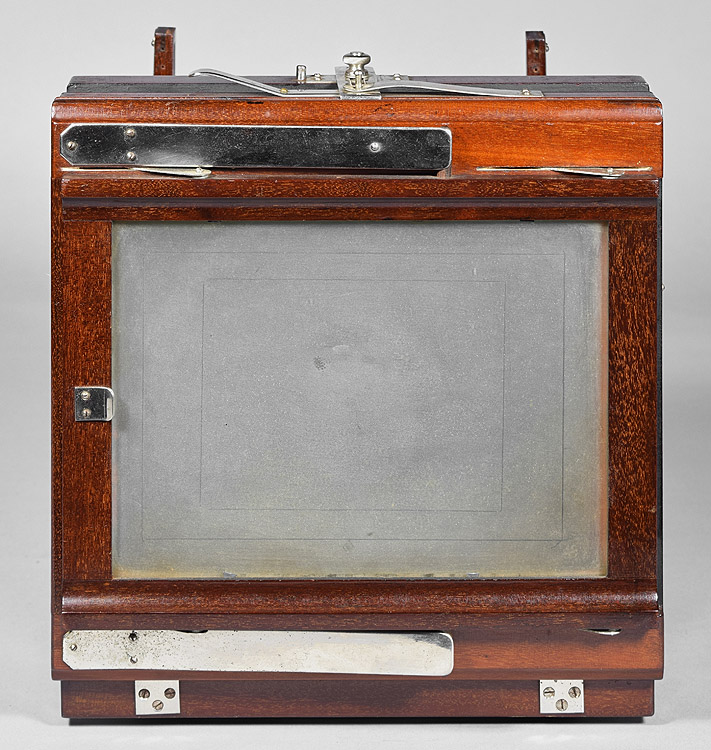
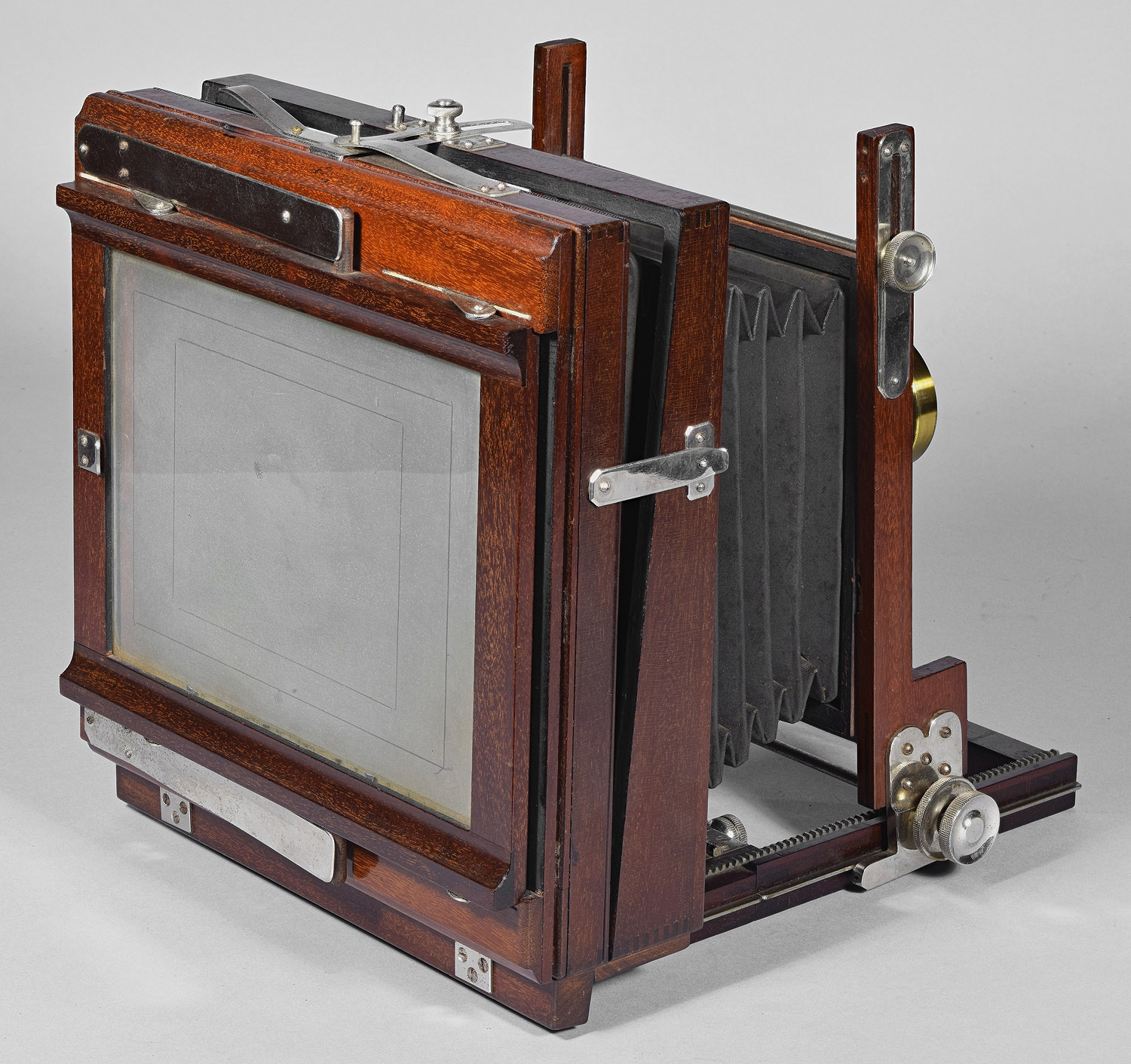
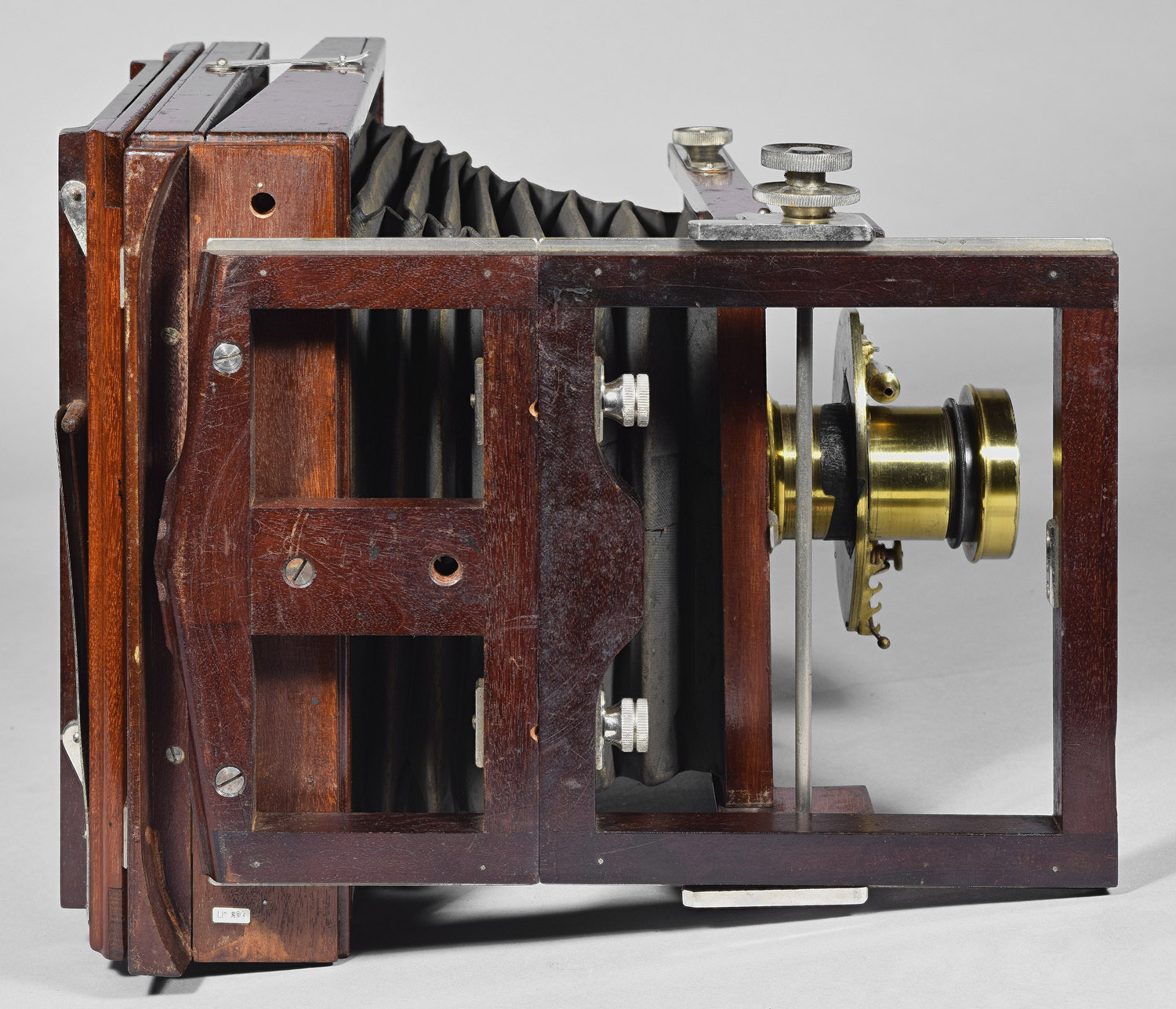
Label, metal, top of
platform/bed: "Blair Tourograph & D.P. Co., Boston"

Date Introduced: - ;
Years Manufactured: c.1884
Construction: front focus
via rack and pinion (two gear tracks on top of base rails);
single or double swing; reverse by removable back; three-piece lens
board
Materials: mahogany body; cherry base;
black fabric bellows; nickeled hardware
Sizes Offered: 4¼x5½; 5x7; 5x8/6½x8½;
6½x8½/8x10; 8x10/10x12
Notes: two section base; front section
removes for storage. Apparently, the
combination part of the name refers to the ability to place more
than one back on the camera, as above. The reversible
part of the name comes from the ability to switch from horizontal to
vertical format by removing and repositioning the back. The
ordinary
Combination Camera also reverses, but only by taking the camera
off the tripod and re-attaching it by its second tripod mount.
The
Combination Camera, Reversible Back,
Variation 1 has a peculiar giant front standard extension, while
Variations 2 and 3 have
a normal front standard.
Variation
2 has metal reinforcement of the front standard while
Variation
3 has a similarly shaped, all-wood version (the same variation
in front standard can be seen in the
Champion).
Variation 3 also sports wing-shaped bottom brackets for retaining
the back and a dual right-side thumbscrew. Since Variation 3
is known from the 1886 reference, Variation 2 may be the earlier of the
two. Variation 2.5 has some features of Variation 2
(e.g., the metal reinforcement on the front), but also unique features,
such as the open top front standard, and a three piece bed (including
one hinged piece), which is a marked improvement over the two piece bed
that is largely useless until the two pieces are reunited.
There are small difference between the above two examples, the most obvious of which is that on the verticals of the front standard (that end in mid-air), the wood is rounded to the contour of the hardware in the top example, whereas the wood is merely cut off square in the bottom example.
References:
Back to Blair Companies
